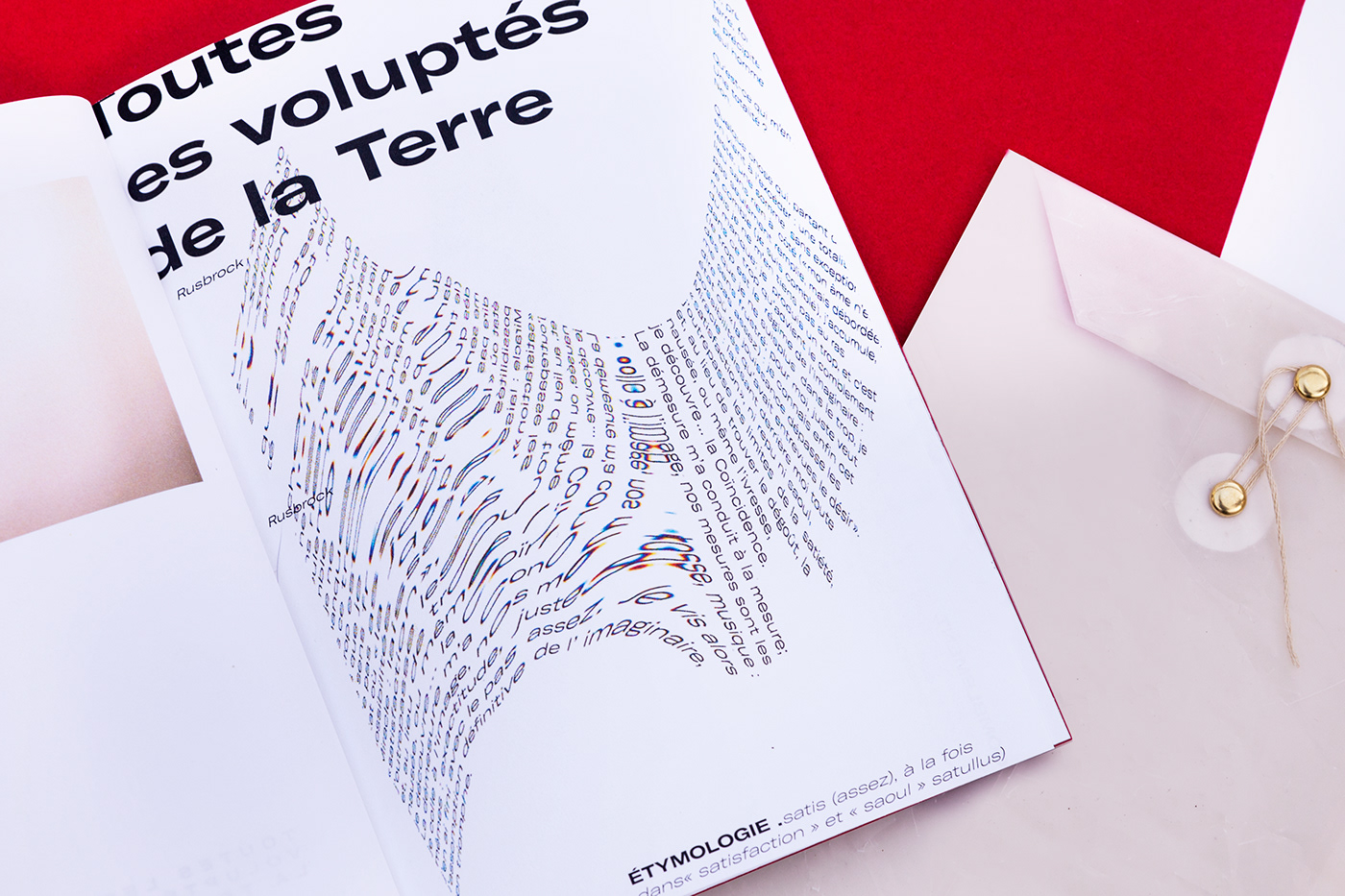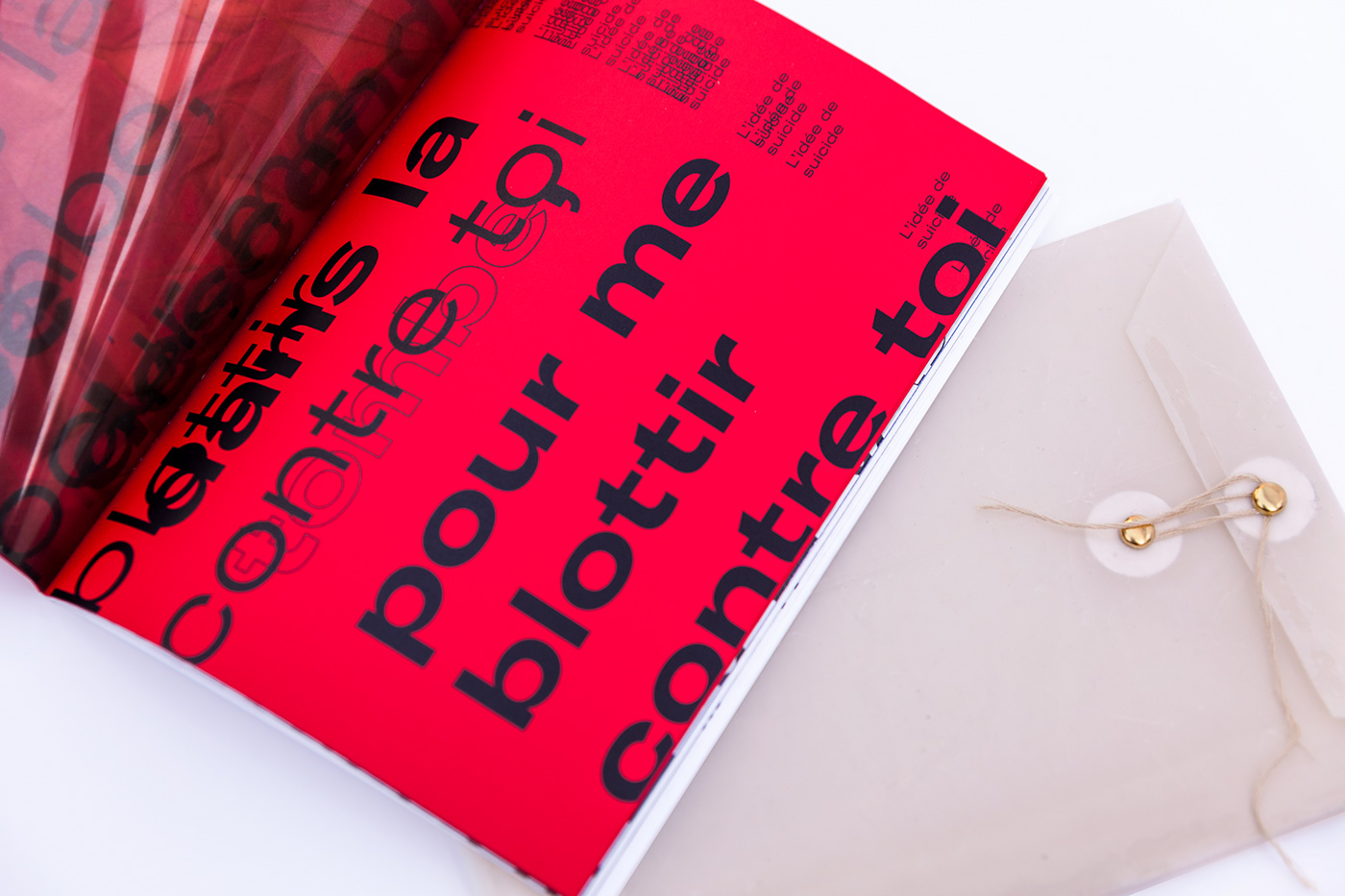Fragments d'un Discours Amoureux
Inspiré de l'oeuvre de Roland Barthes
Fragments d’un discours amoureux de Roland Barthes s’inscrit comme l’une des oeuvre emblématique de l’auteur et sémiologue. Roland Barthes s’appuie sur des oeuvres littéraire, qu’il s’agisse de romans comme Les Souffrances du jeune Werther de Goethe, mais aussi sur toute forme d’art et de création, qu’il combine à sa propre réflexion et ses propres expériences. Cet essai ne se veut donc pas une étude positive, mais la proposition de cheminements et d’explorations qui peuvent expliquer, ou du moins éclairer, toute expérience de l’amour en relation avec le langage. Chaque passage du discours de l’amoureux représente un fragment du livre. Les différentes notices (« Jalousie », « Bien-être », ou encore « S’abîmer ») qui forment la structure du livre, présentent chacune en marge les références que Barthes appelle pour relayer son propos. Pour ne pas prendre partie dans l’expérience
amoureuse de ses lecteurs, Barthes catégorise de manière alphabétique chaque fragment qu’il défini.
Cette œuvre reste une sorte d’ovni dans le champ littéraire consacré à l’amour qui demeure assez restreint.
Concept :
Interprétation de l’oeuvre de Roland Barthes sur le thème du comportement amoureux. Réalisation d’un court
métrage et d’un objet éditorial dialoguant autour de la bipolarité des sentiments. En s’appuyant sur deux
Fragments de l’oeuvre de Roland Barthes, nous choisissons d’exprimer la dualité et les contrastes
schizophrènes des relations amoureuses.
" Toutes les Voluptés de la Terre " est le fragment dans lequel Barthes définit la sensation de comblement intense ressenti par l’amoureux lors de la présence de l’autre. La joie et l’euphorie qui s’en dégage est en parfaite
opposition avec le fragment " Idée de Suicide ", qui lui traite de la profonde dépression et des idées
obscures que procure le manque et la déception chez l’amoureux. Ces deux fragments ne relatent pas des mêmes causalités, mais elles témoignent de divergences maladives par la tension et et les émotions intenses de l’amoureux.
En sélectionnant et entrecoupant certains passage des deux fragments, il en ressort un
texte poétiquement bipolaire, qui pour autant, représente toute la dualité des extrêmes amoureux.
Cette oeuvre videographique est la traduction de ce texte recomposé.
A Lover's Discourse: Fragments
Based of the essay of Roland Barthes
A Lover’s Discourse: Fragments of Roland Barthes is one of the most emblematic work of the author and semiologist. Barthes relies on literary works such as Sorrow of young Werther of Goethe, but also on all forms of art and creation, which he combines with his own reflection and experiences. This essay is therefore not meant to be a positive
study of Love, but the proposition of pathways and explorations than can explain, or at least enlighten, any experience of love in relation to language. Each passage of the lover’s speech represents a fragment of the book.
The various notice (« Jealousy »,Well-being », or « Fading ») which form the structure of the book contain the references that Barthes calls to relay his words. To avoid taking part in his reader’s love affairs,
Barthes categorizes alphabetically each fragment he defines. This work remains a kind of UFO in the
literary field devoted to love, which remains rather restricted.
Concept
Interpretation of Roland Barthes’ work on the theme of love behavior. Realization of a short film and an editorial object, dialoguing around bipolarity of feelings. Based on two fragments of the work of Barthes, this project choose to express the dualité and schizophrenic contrasts of love relationships. « All the pleasures of the Earth » is the fragment in which Barthes defines the feeling of intense filling felt by the lover in the presence of the other. The joy and euphoria that emerges is in perfect opposition to the fragment « Idea of Suicide », which deals with the deal depression and
obscure ideas and speech that provides the lack and the disappointment. The two fragments do not relate to the same causalities, but both testify to unhealthy divergences by the tension and the intense emotions of the lover.
By selecting and mixing some extracts of both fragments, a poetic bipolar text emerges, which represents all the
contrasts of extreme love. This videographic work is the translation of this recomposed text.
Take all the pleasures of the Earth, melt them in one pleasure and rush the whole into one man
It's a sentence that I caress darkly, but a little nothing will distract me
For the slightest injury I want to commit suicide
This will be nothing to the enjoyment I'm talking about
My soul is not only filled but overwhelmed
I see myself suddenly trapped, immobilized in an impossible situation
That's how it is with me: I would like to open a vein, to assure myself eternal freedom
I am too much, and it is in this too much that the Filling comes
Filling is a haste, it condenses, melts on me, strikes me
I reborn and colors this idea of the Colors of Life,
I lead it aggressively against the beloved object
I am fantastically united to him in death
No matter how lucky you are to be truly fulfilled, only shine, indestructible the Filling desire
Joy wants itself, it wants eternity, it wants everything to remain eternally the same
What she wants is the death of a man, it's my death
Hardly do I know how I will commit suicide, I will go down to the grave, to snuggle up against you
My last breath is followed by another more ultimate one
The enjoyment exceeds the possibilities that the desire had glimpsed
The excess has led me to the measure





















